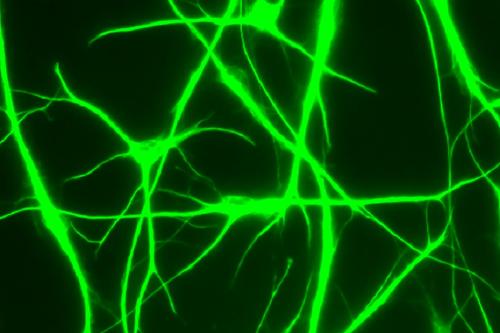
Ye Zhang, Ph.D.
- Associate Professor, Psychiatry and Biobehavioral Sciences

Ye Zhang, Ph.D., studies glial cells, an important but often overlooked group of cells in the brain and spinal cord. Her work aims to understand how these cells develop and function, with a particular focus on how they contribute to human brain development, health and disease.
Glial cells make up at least half of all cells in the human brain. Once considered passive support cells, they are now known to be crucial for the development and function of the central nervous system. While evidence shows that glial cells play a role in nearly every neurological and psychiatric disorder, the mechanisms controlling their development and dysfunction in these disorders are not well understood.
To overcome these knowledge gaps, Zhang uses cell cultures and mouse genetics to study glial cell biology in both health and disease. One area she addresses is the fate of embryonic radial glia in the brain as it develops. These stem cells are present in embryos but disappear after birth. To this end, Zhang discovered mouse mutants that retain radial glia into adulthood and exhibit prolonged postnatal cortical neurogenesis. This finding represents a valuable foundation for future studies directed toward improving neural stem cell-based therapies for neurological disorders.
Another major focus of Zhang's research involves studying star-shaped brain cells called astrocytes in humans. She has systematically identified similarities and differences between human and mouse astrocytes under both normal and disease-relevant conditions. This comparative approach has led to important discoveries about how factors such as disease, age and sex can influence how these cells behave. Furthermore, Zhang has determined how astrocyte-to-astrocyte contact can regulate astrocyte maturation.
Zhang is also making strides in identifying novel mechanisms regulating the development of oligodendrocytes, a type of glial cell in the brain and spinal cord that produce myelin. She uncovered a new role that exocytosis plays in oligodendrocyte development and myelination, and has also revealed how lymphocytes influence oligodendrocyte gene expression during normal brain development.
Research Projects
- Characterizing glial cell interactions to identify their role in brain development, function and disease
- Examining how human astrocytes change during diseases such as epilepsy, brain tumors and neurodegeneration
- Identifying the developmental mechanisms that transform embryonic neural stem cells A type of tissue-specific stem cells found in the brain and spinal cord. These cells play a crucial role in the development, maintenance and repair of the brain and nervous system throughout a person's life. neural stem cells A type of tissue-specific stem cells found in the brain and spinal cord. These cells play a crucial role in the development, maintenance and repair of the brain and nervous system throughout a person's life. into adult neural stem cells
-
Post-doctoral Fellowship
- Neurobiology, Stanford University, 2016
Degree
- Ph.D., Neuroscience, UC San Francisco, 2009

